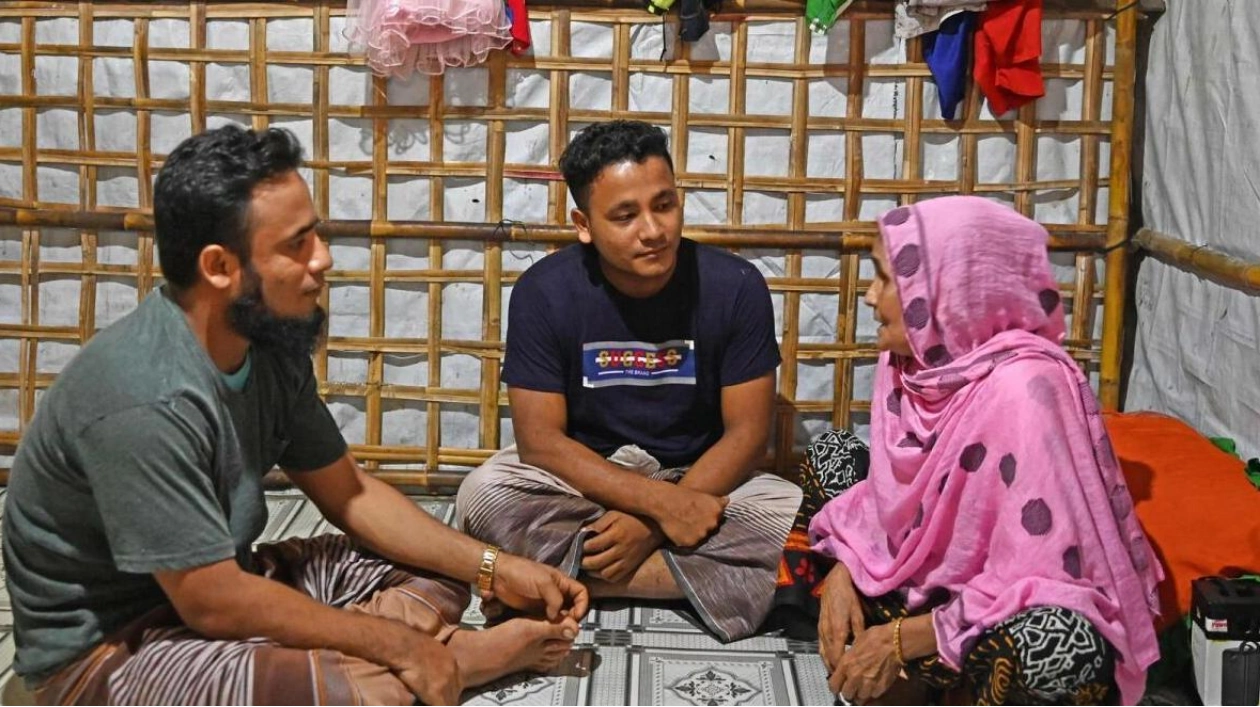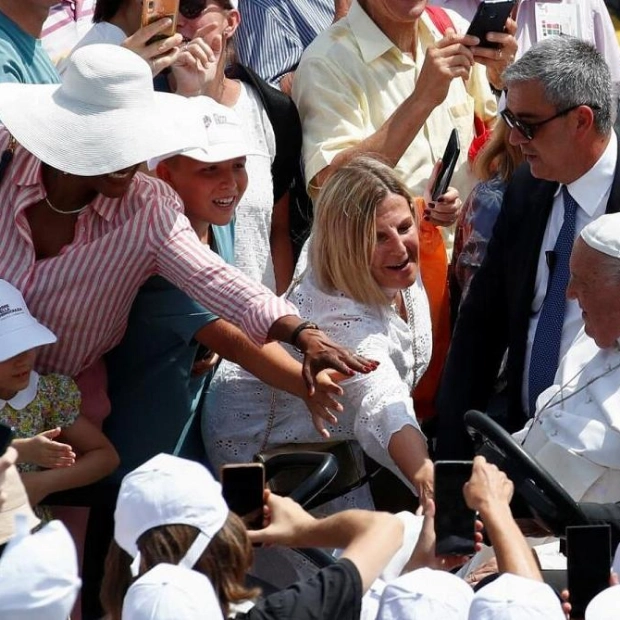Rohingya refugee Syed recently fled Myanmar for the second time, after being compelled to fight alongside the military that had previously driven his family from their homeland. Syed, whose name has been altered to protect him from retaliation, is among thousands of young men from the stateless and persecuted Muslim minority who have been coerced into fighting a war not of their own making. Their forced enlistment into the junta-run Myanmar military has led to retaliatory attacks on civilians and pushed thousands more into Bangladesh, which is already home to around a million Rohingya refugees.
"The people there are suffering immensely. I witnessed it firsthand," Syed told AFP shortly after his escape and return to the squalid Bangladeshi relief camp he has called home for the past seven years. "Some are starving, dying from hunger," the 23-year-old added. "Everyone else is preoccupied with saving their own lives."
Syed recounted being conscripted by a Rohingya armed group operating within the camps in June and subsequently sent to fight against the Arakan Army, a rebel group battling Myanmar's junta for an autonomous homeland. He and other Rohingya recruits were tasked with menial jobs such as carrying supplies, digging trenches, and fetching water for Myanmar troops who were entrenched against advancing rebel forces. "They provided us with no training," he said. "The military stayed in police stations; they didn't venture out."
During a patrol to a Muslim village, Syed managed to escape his captors and return to Bangladesh. He is one of approximately 14,000 Rohingya who have crossed into Bangladesh in recent months as border skirmishes intensified, according to figures provided by the UN refugee agency to the Bangladeshi government. Experts estimate that at least 2,000 Rohingya have been forcibly recruited from refugee camps in Bangladesh this year, along with many more in Myanmar who were also conscripted.
Those coerced into service in Bangladesh claim they were forced to do so by armed groups, possibly in exchange for concessions by Myanmar's junta that might allow them to return to their homeland. Both the Arakan Rohingya Salvation Army and the Rohingya Solidarity Organization, the two armed groups operating in the camps, have denied recruiting refugees by force. "We never coerced anyone into joining us or others," a senior RSO leader, Ko Ko Linn, told AFP.
The UN Human Rights Office has reported that both the Myanmar military and the Arakan Army have committed severe abuses against the Rohingya during the conflict. Other rights groups suggest that the forced recruitment of Rohingya into Myanmar's military has provoked retaliatory attacks by the Arakan Army. In the most severe documented case, watchdog Fortify Rights reported last month that the rebel group had killed over 100 Rohingya men, women, and children in a drone and mortar assault near the border.
The Arakan Army has consistently denied responsibility for the attack and accusations of targeting Rohingya civilians. However, many of the new refugees crossing into Bangladesh accuse the group of killings. Mohammad Johar, 22, told AFP that his brother-in-law was killed in a drone attack he blames on the Arakan Army while they were fleeing the border town of Maungdaw earlier this month. "Dead bodies were strewn everywhere, on the riverbanks," he said. "The Arakan Army is more powerful there. The Myanmar military can't keep up with the Arakan Army. They both bomb each other, but it's the Muslims who are dying."
Bangladesh has long struggled to accommodate its large refugee population, most of whom arrived following a 2017 military crackdown in Myanmar, which is under ongoing UN genocide investigation. Still recovering from the recent overthrow of its previous government by a student-led revolution, Bangladesh has declared that it cannot accept more refugees. "We regret to say this, but we are beyond our capacity to provide shelter to anyone else," interim foreign minister Touhid Hossain stated this month.
However, after deadly attacks on an estimated 600,000 Rohingya still living in Myanmar, the new arrivals felt they had no choice but to seek safety across the border. "After seeing dead bodies, we were terrified that more attacks were imminent," 20-year-old Bibi Faiza told AFP after crossing the border with her young daughter. "I no longer hear gunshots, and there is peace here."






